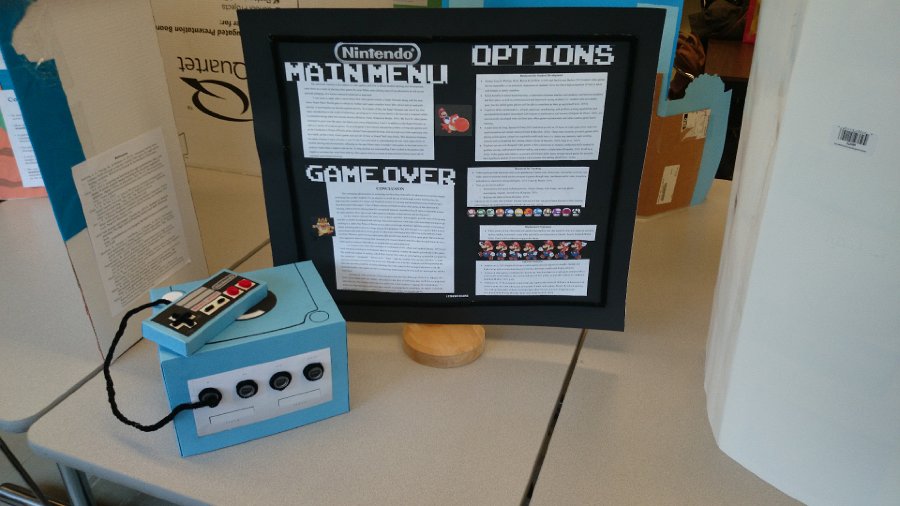My research into the role video games have on student learning has provided me with invaluable knowledge of both the benefits and detriments they provide. I hope to continue my inquiry into this fascinating topic and to one day implement what I learned into my classroom.
Fast forward to 2014 and I engaged in a different kind of inquiry. I was seven when I received my first video game console, a Super Nintendo along with the now classic Super Mario World game to which my brother and I spent countless hours after school and on weekends playing; it soon became our favorite pastime activity. As a matter of fact, the Super Nintendo was one of my first major introductions to the world of technology; growing up in a low-income family I did not own a computer. My love for video games continued to grow over the years. As an avid gamer I have always enjoyed the problem solving type games such as the Uncharted or Prince of Persia series as opposed to the overly violent games such as Call of Duty or Grand Theft Auto Series. This distinction between the types of games I enjoy and play is part of why I was motivated in understanding the role video games have on student learning and development; reflecting on the past fifteen years I consider video games to have had more of a positive impact than a negative one on me. To help develop my understanding I looked at the positive and negative outcomes that result from playing video games; both as a means of entertainment (leisure play) and of teaching (game-based learning). As a result of playing video games for over fifteen years (during most of my education) I wondered what role video games played in student learning and development.
As a result of my research I came to the conclusion that with the continuing advancements in technology it’s becoming impossible for educators to avoid the impacts technology has on their students. For an educator to avoid the use of technology in their teaching they are depriving their students of a unique and beneficial avenue for learning and development. A few of these avenues are based on using video games in the classroom for learning, others are from playing them for recreational purposes. The issue however is not so black and white. Action games, provide some of the greatest benefits to student development and learning; they require players to multi-task such as problem solving/critical thinking (i.e. games like Prince of Persia involve many puzzle-type situations), fighting enemies, avoid getting killed, and being able to process a large amount of information. They also increase non-cognitive skills such as perseverance and motivation; these games are often more challenging than others due to the amount of tasks involved. However, given the very same games that provide these benefits are the same games that contain the most aggressive behavior among their characters, my research demonstrates how their is a dual nature to most video games in terms of their effects on student learning and development.
